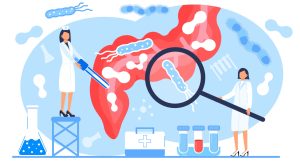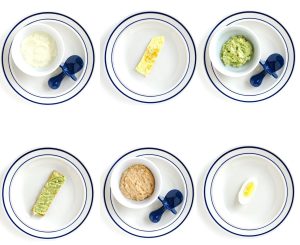Milk is rich in calcium, as well as protein, fat, vitamin A, B vitamins and other nutrients. It is an important part of a healthy and balanced diet for children. Milk is rich in nutrients, so the more you drink, the better? no. For children aged 1-3 years old, drinking too much milk may cause health hazards.
Why is drinking too much milk bad?
◆ Iron deficiency anemia
Milk contains low iron, and drinking too much milk will naturally affect your child’s intake of other iron-rich foods. At the same time, milk will also affect the body’s absorption of iron. Existing evidence suggests that children under one year old who drink more than 700 ml of milk per day are at risk of iron deficiency anemia.
Seeing this, some people may wonder, is it completely okay to drink more iron-fortified formula milk? Not really. For healthy children after one year old, there will be no additional health benefits if they continue to drink formula milk powder. Formula milk is no longer necessary for children after one year old. Therefore, you can save money on formula milk if you can.
In addition, iron deficiency anemia is not the only health concern caused by too much milk.
◆ Constipation
Both the child’s stomach capacity and energy needs are limited. When a child drinks more than 500-700 ml of milk per day, his or her demand for other foods is likely to decrease, and the child will generally show a partial eclipse or not like to eat, becoming a “rice scum” as we say.
When the diet structure is biased and children eat less solid food, especially fiber-rich vegetables and fruits, there will be a risk of constipation.
◆ Obesity
So if the child drinks a lot of milk but eats other foods well, there is no need to worry? Neither. On top of drinking a lot of milk, eating a lot of other foods also means that the child will consume extra calories. And when you overfeed, you run the risk of obesity.
How much milk is appropriate per day?
For 1-3 years old, we can calculate the appropriate amount of milk per day based on the daily calcium needs. How much calcium should be consumed by children aged 1-3 years old? Different countries have different recommendations. For example, Australia and New Zealand are 500mg/day, the Nutrition Society of China recommends 600mg/day, and the United States is 700mg/day.
The calcium content of milk is 128 mg per 100 ml. In addition to milk, cheese and yogurt are the most important sources of calcium in the daily diet. Other foods that can provide small amounts of calcium include: tofu, soy products, beans and green leafy vegetables such as broccoli and spinach, as well as calcium-fortified foods.
Therefore, for children aged 1-3 years old, the calcium needs can be met with 500 ml of milk per day, even if they do not eat other calcium-containing foods at all. This calculation result is actually in line with the recommendations and guidelines of current authoritative organizations.
According to the current official recommendations in Australia, children aged 1-2 years old should have 1-1.5 servings of dairy products per day; children aged 2-3 years old should have 1.5 servings of dairy products per day. I mentioned in my previous article “0-3 years old, calcium deficiency, calcium supplement, just read this article” that one serving of dairy products is equivalent to: 250 ml of milk, or 200 grams of yogurt, or 40 grams of cheese.
Therefore, if a child only drinks milk and does not eat any other dairy products, the recommended daily milk volume for 1-2 years old is 250-375 ml; for 2-3 years old, the recommended daily milk volume is 375 ml.
According to the dietary guidelines of the Chinese Nutrition Society, the recommended daily milk volume for 1-2 year olds is about 500ml, and for preschoolers, the recommended daily milk volume is 300-400ml. The current official recommendation in the United States is that children aged 2-3 years old should have 480 ml of milk per day.
Taken together, for children aged 1-3, 500 ml of milk per day is completely sufficient, and drinking 375 ml per day is appropriate. If the daily milk volume exceeds 500 ml or even 700 ml, it may cause other health concerns.
Milk is only part of a healthy diet. Don’t persuade your children to drink more milk just because you are worried about calcium deficiency. For children aged 1-3 years old, it is key to actively guide and encourage children to have healthy and balanced eating habits. They should consume dairy products in moderation, not more, the better.




